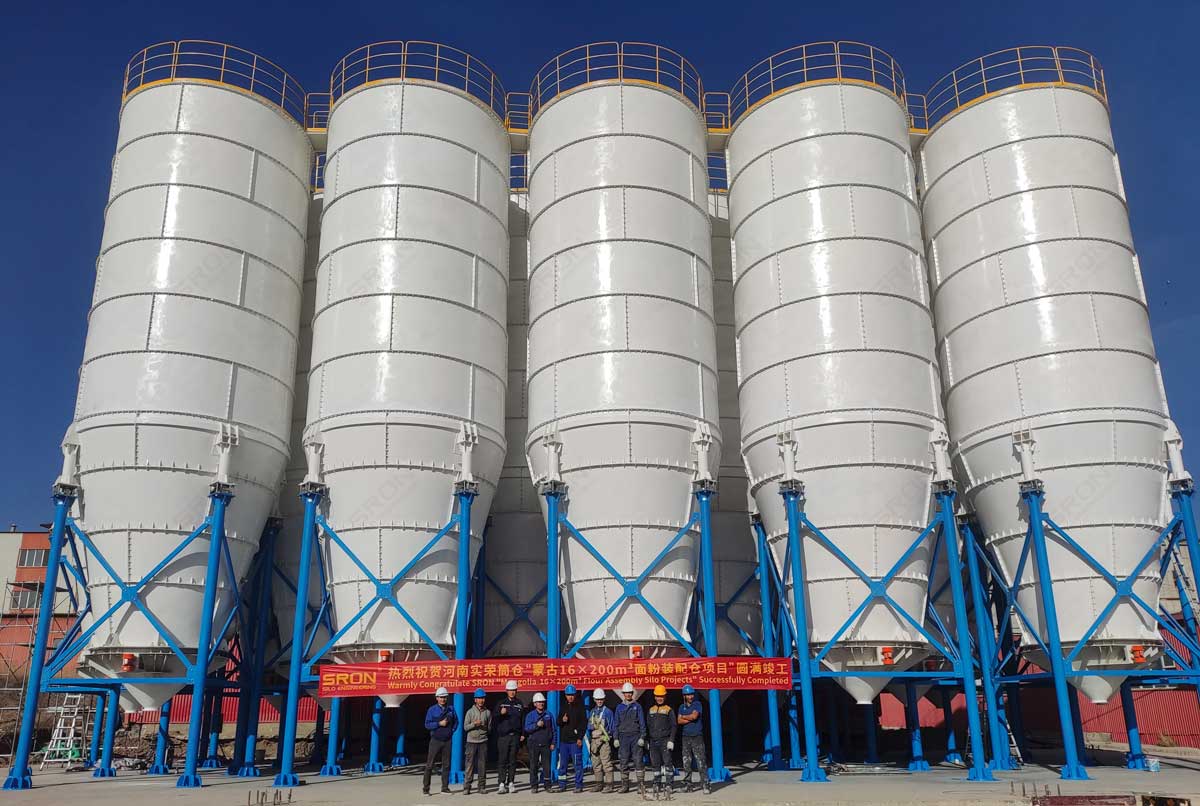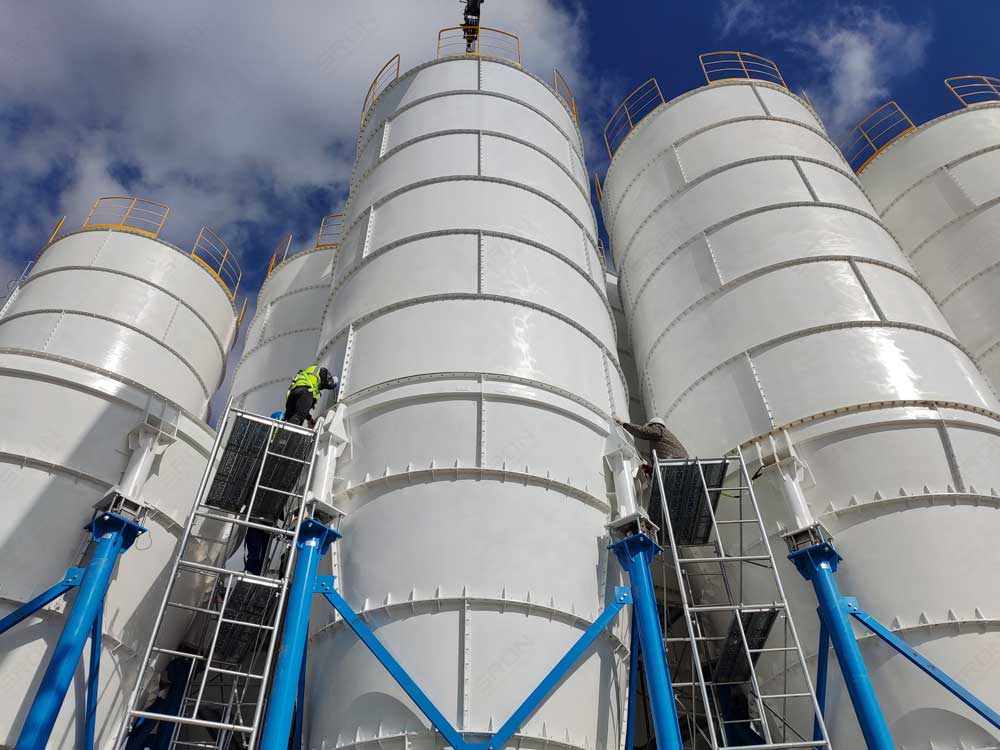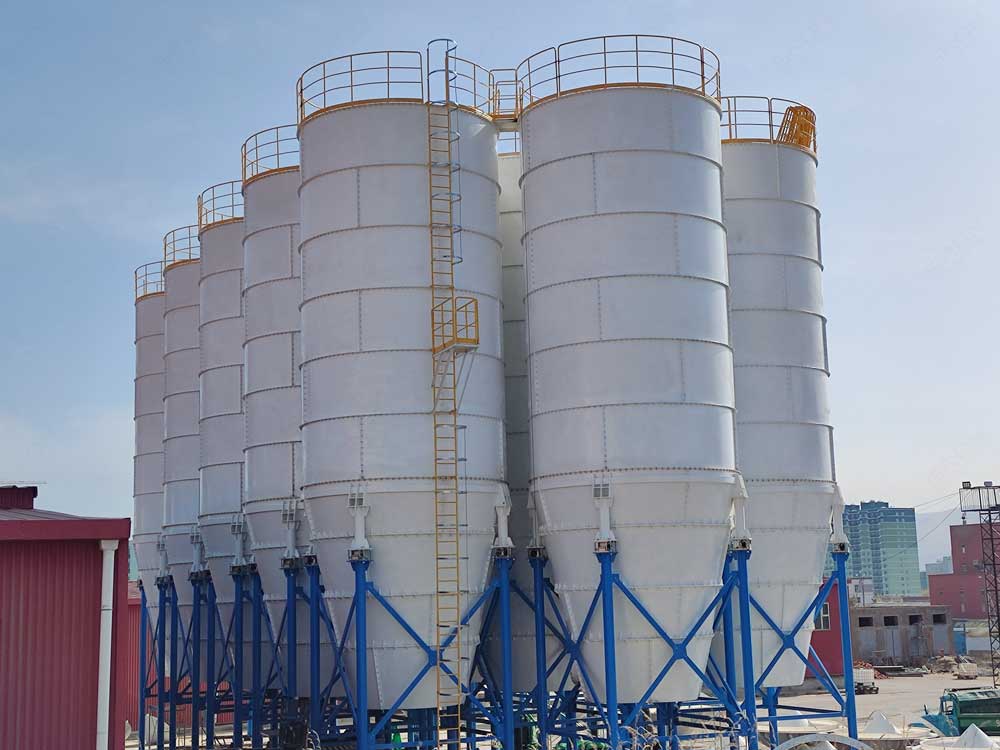In the flour production chain, the storage link is often regarded as a supporting role, but it is one of the important factors affecting the profit margin of enterprises. As a powdery material that is easy to absorb moisture and pollute, flour has extremely high requirements for the storage environment. Traditional storage methods often face the "three highs" problem of high loss, high labor, and high land rent, resulting in a large amount of "invisible" cost expenditure.
In the current market environment of rising costs and intensified competition, it is crucial to effectively reduce these "hidden expenses" while ensuring the quality of flour. The flour steel silo, with its high efficiency, intelligence, and environmental protection, has become the preferred solution for flour mills to save money and increase efficiency.
Cost saving of flour steel silo
1. Maximize space utilization
Traditional bungalow warehouses use horizontal storage structures, occupying a large area and low space utilization. Steel silos use vertical structure design and high-density storage, which greatly saves land resources.
2. Reduce flour loss
Flour is a material that is easy to absorb moisture and oxidize. If you are not careful, it may cause mildew, caking, insect infestation and other problems, causing huge losses. Steel silos have excellent sealing properties and can effectively isolate moisture, insect pests, rodent pests and external pollution; with the in-and-out warehouse system, it can achieve precise adjustment of the warehouse environment, provide constant, dry and clean storage space for flour, and extend its shelf life.
3. Automated management and reduction of labor costs
Steel silo systems are generally equipped with pneumatic or mechanical conveying in-and-out systems, which do not require a lot of manual operation, which not only improves work efficiency but also reduces labor intensity. Compared with traditional warehouses that need to be equipped with stacking, inspection, cleaning and other positions, steel silos can save more than 50% of labor costs, while reducing operational errors and safety hazards.
Advantages of flour steel silo
Excellent airtightness: The assembled or welded steel silo is adopted, and the welds are ground and sprayed with food-grade resin paint, which not only ensures the airtightness of the steel silo, but also the surface of the silo is very smooth and flat without dead corners, ensuring that there is no residue when the steel silo is unloaded.
Fast construction progress and low cost: The assembly silo is simple and quick to install. The groove welding in the silo is carried out while the silo is assembled, which greatly improves the overall construction progress. The inner wall of the silo is sprayed with food-grade resin paint, which not only ensures the safety of flour storage, but also greatly reduces the manufacturing cost compared with other types of silos, such as stainless steel silos and concrete silos.
High degree of mechanization: The flour assembled steel silo stores bulk flour, and pneumatic conveying is used for feeding into the silo, and vibration unloading is used for unloading. At the same time, the silo is equipped with material level measurement and material weight measurement. Intelligent conveying and storage greatly reduces labor costs.
Potential value of flour steel silo
1. Improve flour quality and gain market advantage
The stable storage environment of steel silo not only reduces quality fluctuations, but also maintains the color, aroma and nutrients of flour, which helps enterprises stabilize product quality and improve brand reputation. High-quality flour means stronger market bargaining power and more loyal customer base. Especially under the current trend that consumers pay more and more attention to the health and safety of products, quality is competitiveness and stability is value.
2. Environmental compliance, avoid potential fines
With increasingly stringent environmental regulations, traditional storage methods often have problems such as dust overflow, warehouse clearance pollution, and substandard emissions, which are easy to be named and punished by environmental protection departments, and even ordered to rectify and stop production.
Steel silos have the characteristics of strong airtightness and excellent dust emission control. They can effectively control dust leakage, and cooperate with environmental protection systems such as dust removal and exhaust, which fully meet the environmental protection requirements of the food industry. Compliance operation not only ensures the continuity of enterprise production, but also avoids the tens of thousands to hundreds of thousands of environmental protection fines that may be faced each year.
3. Durability and low maintenance, reducing long-term operating expenses
High-quality flour steel silos usually use galvanized steel plates or spray-coated steel plates for anti-corrosion treatment. They have a strong structure and strong corrosion resistance, and their service life can reach 25 years. Compared with traditional warehouses that require frequent maintenance and repairs, the maintenance cost of steel silos is extremely low.
As profits in the flour industry are becoming increasingly slim, improving efficiency in every link and exploring every potential space for cost savings are the keys to maintaining competitiveness. Flour steel silos not only save land, labor and raw material costs, but also help companies build an efficient and sustainable modern storage system through automation, intelligence and environmental protection advantages. Savings are profits, and management is competitiveness. Let steel silos become your company's assistant in reducing costs and increasing efficiency.



.jpg)
